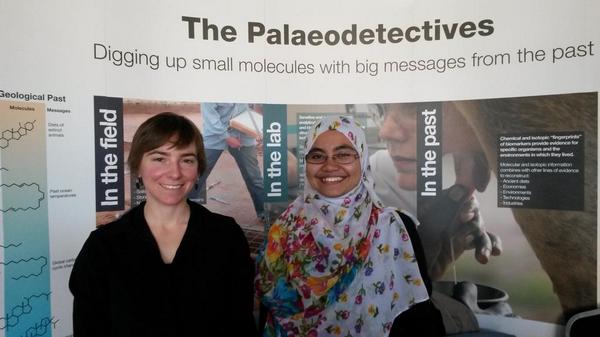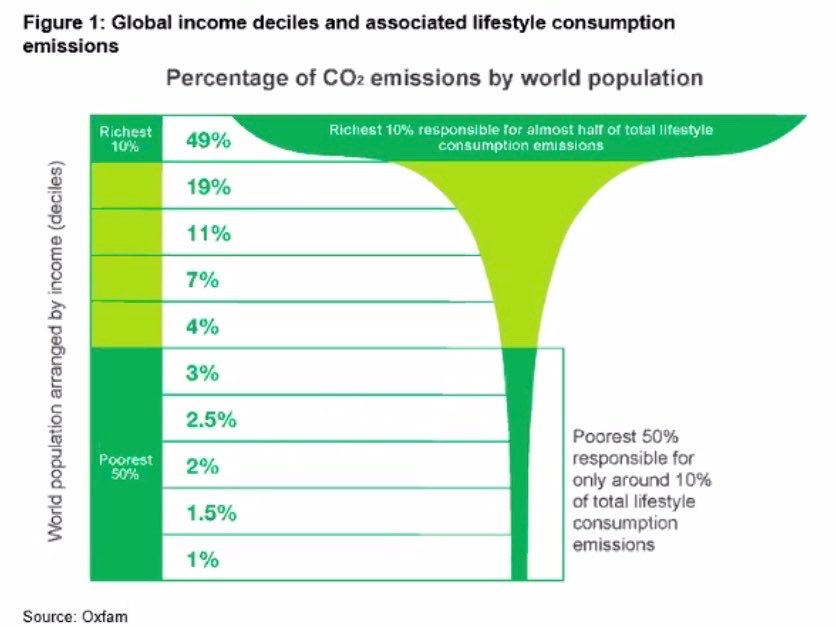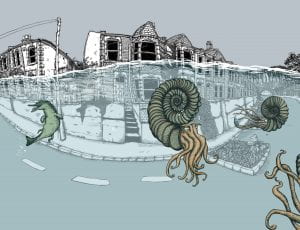Since 2014 I have served on the Board of Preventable Surprises, a CIC devoted to challenging investors to better anticipate and address financial disasters arising from systemic risks such as climate change and biodiversity loss. Founded by the inspiring Raj Thamotheram but supported by some of the world’s leading financial experts, it is dedicated to the concept of Forceful Stewardship, the active, disruptive and ethical (and occasionally radical) role that shareholders should take in their investments. Crucially, we challenge large corporate and charity investors (including hedge funds and pension funds) to fulfill their legal obligations to their clients by adopting an active role in avoiding systemic risks either through shareholder engagement or divestment. In doing so, we have widened the the ESG (Environment, Social and Governance) shareholder community. But we also hold those investors accountable to their legal obligations and to their pledges, identifying patterns of inconsistent voting and problematic behaviour.
This is not an initiative I ever anticipated joining. I am not an expert on finance and investment. I am quite skeptical of the free market approach with which this project is inherently in dialogue. I joined because it complemented the Divestment agenda of student colleagues at the University of Bristol and because it was an opportunity to modestly step into environmental activism and learn from that.
And it has achieved both of those goals. Bristol was one of the first Universities to divest from fossil fuels, a journey bracketed by a 2015 pledge to carbon neutrality and the first academic declaration of a Climate Emergency in 2018. Key to that was my involvement at PS and the insight it gave me into responsible investor behaviour. Organisations, including the University of Bristol, were countering the global divestment campaign by arguing, often cynically so, that more could be achieved by holding investments and serving as engaged stakeholders. However, few if any of them have the capacity – let alone the will – to act in such a manner. At Bristol, these discussions and an honest recognition of what we could achieve paved the path towards divestment as the ethical and appropriate alternative.
At the same time, Preventable Surprises helped me redefine the parameters of my own environmental activism, facilitating my shift from being a scientific expert politely contributing knowledge to policy debate but restrained from critiquing it to a far more radical view of directly challenging government failure to act on the Climate and Ecological Emergencies. In particular, it provided a gateway to activism because Preventable Surprises does not advocate for any particular solution or action, a more comfortable position for scientists who are reluctant to step outside of their area of expertise. Instead, PS advocates for investors to do no more than adhere to their legal obligations and their own pledges to ethical behaviour. My view towards activism has changed significantly over the past decade, and my involvement with Preventable Surprises has been central to that.
Below is some further information on Preventable Surprises and the Forceful Stewardship model it has championed for ethical investment. And below that, some further personal reflections on what this approach can achieve and whether a more radical approach is needed. I think that I have probably given and learned as much as I can from this initiative. I think that we are identifying the limits of what even the strongest free market interventions can hope to achieve. I think I am ready for the next stage of my own social and environmental activism. But responsible investment still has a crucial role to play.
From the Preventable Surprises website:
For many years, Preventable Surprises has been addressing financial disasters that investors could–and should–have seen coming. Concerns about BP’s safety record, the accounting practices of Tesco, sloppy mortgage lending–these were in the public domain for years before disaster struck. Preventable Surprises, a community interest company, is a ‘think-do’ tank that seeks to prevent, or at least mitigate, corporate and market implosions.
We work with a group of positive mavericks within the investment industry to persuade and cajole the financial sector to better address systemic risks. Using climate change as an example, we define systemic risks using three features:
- They are pervasive and not confined to a sector or territory. The Sustainability Accounting Standards Board found that 72 of the 79 industries in the SASB classification system are affected by climate change.
- They are non-linear with unpredictable tipping points. The long-term climate transition will almost certainly be volatile and messy. Global temperatures and rainfall may rise incrementally on average but extreme changes will be localised and deadly.
- They are inter-related, making it impossible to predict the likelihood of Black Swan events.
While regulators, the media, NGOs and consumers each have a role to play in building a more transparent and sustainable market system, most of the power lies with corporations and their investors. Preventable Surprises focuses on institutional investors because, through the trillions of dollars in assets under their management, they have enabled corporate and market dysfunction. While this may be unintentional, the continuing damage caused to investors and to ecosystems in untenable.
Long-term investors cannot use stock-picking or hedging strategies to avoid systemic risk. In the case of climate change, institutional investors’ end beneficiaries will pay the price as the extent of portfolio risk is revealed. That is why investors must mitigate systemic risk through forceful stewardship. As fiduciaries, they must go beyond private engagement to publicly vote for resolutions at AGMs that force companies to align with the 2°C scenario envisaged in Paris.
Forceful stewardship complements the normal approach to responsible investing – in which traditional investment decision-making is overlaid with a filter for environmental, social and governance issues – by focusing on the rights that investors have as owners. But forceful stewards also go beyond private engagements with investee companies, which lack transparency and are hampered by conflicts of interest. Many of us and those we work with are deeply pro market. But as experienced insiders, we know there are many reasons why the financial industry ignores systemic risks, such as climate change, until it is too late.
“Forceful stewards” engage with companies, and use their full influence to make business part of the solution to address systemic risks. They vote for resolutions to send a public signal and thus to drive deeper and faster corporate change. And forceful stewards also engage with all the other players involved in investment – from research analysts to investment consultants to regulators – to ensure they, too, play their part in addressing systemic risks.
In summary, a forceful steward does three things:
- Indicates in advance a willingness to vote in favour of resolutions requesting action to address systemic risks, and to vote against management if the company has repeatedly failed to take action to limit systemic risk.
- Makes it clear in private engagements with board directors and senior executives that box ticking will not be sufficient; results matter and should match the urgency of the situation.
- Requires fund managers, sell-side research, credit rating agencies, and investment consultants to review corporate disclosures and advise on portfolio implications. And advocates for essential regulatory changes that align incentives in financial markets with risk mitigation and long-term wealth creation.
Why do I personally think that Forceful Stewardship is so important?
Forceful stewardship is not a participation prize for showing up. It is not box ticking. It is not about empty gestures, many of which cannot be evaluated. It demands action. It centres accountability. I joined in 2014 but writing this in 2022, I look back on nearly a decade of Climate Emergencies, Pledges, Commitments to Net Zero – and despairingly little action towards those. Words must precede action.
Our most successful campaign was the Missing 60, in which we identified the 60% of investors who had voted against climate risk resolutions for US companies but in favour of near-identical resolutions for European companies – simply because the former opposed those resolutions and the latter did not. That is not leadership. That is not accountability. That is not the action of a fund manager acting in the best, well-informed interest of their clients.
Forceful stewards do not sit on the sidelines or follow the crowds.
But nor do Forceful Stewards dictate the nature of action. Climate change is a challenge, but no one has a monopoly on the solution. Arguably, inferred assumptions of what those solutions must be has been a major part of its politicisation – political divides around science have arisen not from the science itself (although it is not free from critique) but rather from ideological divides around free market vs government intervention. I have my own opinions about what is needed to tackle a challenge of this magnitude and they do involve ‘big government’ interventions and multi-state coordination, but Preventable Surprises is not the forum for sharing those views. It demands action but is agnostic to the political, behavioural, financial or technological action an organisation takes; it only demands that the action be legitimately engaged with the nature and magnitude of the systemic risks an organisation faces.
This approach has given Preventable Surprises legitimacy and influence in surprising places.
However, it also exposes the limitations of any approach that is embedded within the free market rather than challenging its existence. Corporate actions can be legitimate responses to the climate emergency but replicate other sector sins; copper and lithium mining and major hydro-energy projects can damage the environment and perpetuate inequality just a much as climate change can.
Their are limits to what the free market can achieve because the one thing it can never do is return power and wealth to others at its own expense. In fact to do so is in direct contradiction of the Preventable Surprises core approach – demanding that companies recognise climate change because climate change is a risk to the investment.
Those businesses might change but they will always extract.
Some final reflections
Many of my colleagues are very pro free market. Or more precisely, they are in favour of the most noble possible vision of the free market. Preventable Surprises aspires to make the most of our current socio-political system. And inevitably, any solutions that arise from Preventable Surprises’ interventions will be market-driven ones.
I do not share that optimism. Those of you who follow this blog or my twitter account know that I am not ‘pro market.’ On some days I am quite skeptical of capitalism and other days I am anti-capitalist.
But I currently live in a capitalist country and capitalist forces shape the world. Forceful Stewardship is about making that system work as ethically as it can. Like the fossil fuel divestment campaigns, we understand that we are in the game and so we play the game. I do not think that market solutions will solve the climate problem – and even if they did, I suspect they would give rise to an equally exploitative and colonial ‘green’ energy economy – but we do what we can within the constraints imposed upon us.
That is something. We all do our best to make the world a better place. I am proud of what we have achieved.
But these campaigns have served another purpose – and this is why they are now serving as a springboard for a step change for my own environmental activism. Divestment and shareholder activism are exposing the limits of what our current socio-economic system can achieve. In striving to make the free market behave as ethically as possible, they spotlight its limitations.
When even best practice and the most well-meaning actors fail to create an environmentally and socially just world, then we have run out of excuses for avoiding far more radical change.







 From https://ourworldindata.org/future-population-growth Note the declining rate of population growth since 1960.
From https://ourworldindata.org/future-population-growth Note the declining rate of population growth since 1960.


